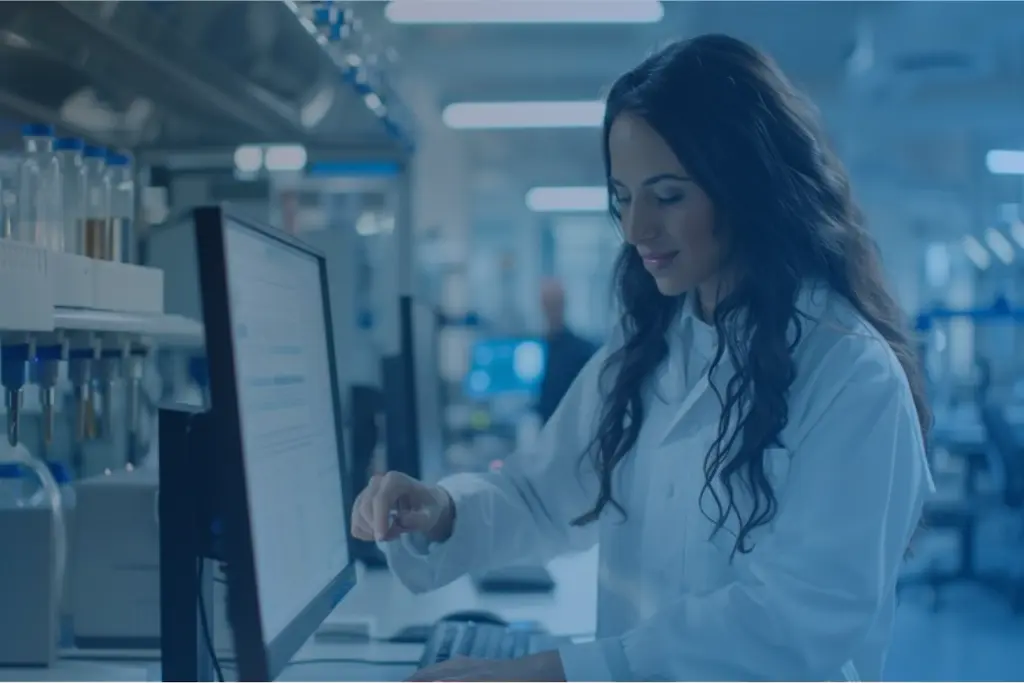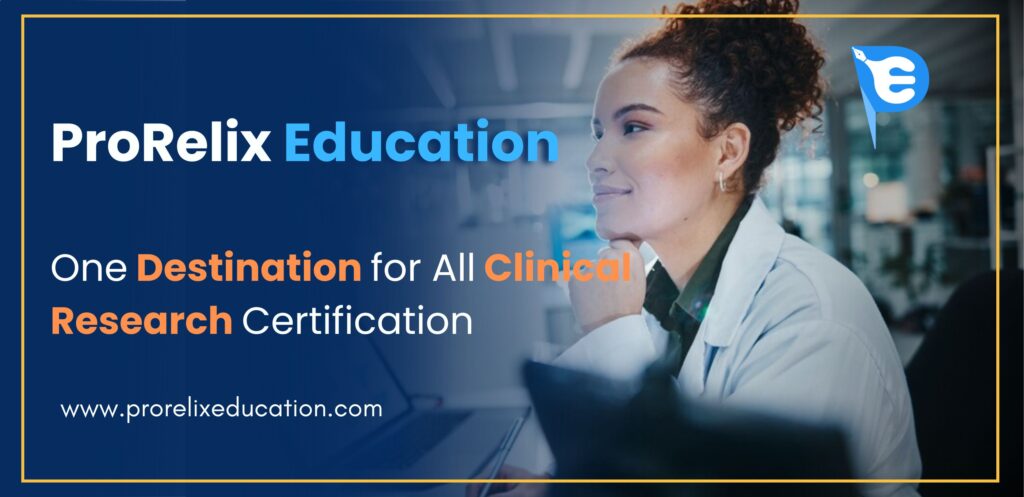
A career in Pharmacovigilance can be a rewarding and fulfilling experience. It is a field of medicine that focuses on the detection, assessment, understanding, and prevention of adverse effects or any other drug-related problems. Pharmacovigilance professionals are responsible for monitoring the safety of medicines and medical devices. They also provide advice to healthcare professionals on how to use medicines safely and effectively.
A career in Pharmacovigilance requires strong analytical skills, knowledge of drug safety regulations, and an understanding of the pharmaceutical industry. It is a challenging yet rewarding field that offers great job opportunities for those who are passionate about making a difference in patient safety.
To become successful in this field, it is important to have knowledge of clinical research courses. These courses provide an understanding of the principles and practices of clinical research, including how to evaluate the safety and efficacy of drugs and medical devices with this knowledge base in hand, pharmacovigilance professionals can help ensure that medicines are safe for use by patients around the world.
The Comprehensive Guide to A Career In Pharmacovigilance And The Exciting Opportunities It Presents:
What Is Pharmacovigilance And How Does It Impact The Pharmaceutical Industry?
Pharmacovigilance is an important part of the pharmaceutical industry, as it helps to ensure that drugs are safe and effective for use. It involves the monitoring and surveillance of drug safety, which helps to identify any potential risks associated with a drug before it is released into the market. This process helps to protect both patients and healthcare professionals from any potential harm caused by a drug. By understanding pharmacovigilance and its impact on the pharma industry, we can ensure that drugs are safe for use and that patients receive the best possible care.
What Are The Different Types of Roles & Responsibilities Involved In A Career In Pharmacovigilance?
Pharmacovigilance is a great way to make a difference in the world of healthcare. It involves monitoring and evaluating the safety of medicines and medical devices, as well as providing advice on their use. As such, pharmacovigilance professionals have a wide range of roles and responsibilities that require them to be knowledgeable about the latest developments in medicine, drug safety, and regulatory affairs.
Different Types of Roles And Responsibilities Are Involved In A Career In Pharmacovigilance.
The Role of A Clinical Research Associate (CRA) In Pharmacovigilance
Clinical Research Associates (CRAs) play an important role in pharmacovigilance, especially in siteless clinical trials. CRAs are responsible for collecting and analyzing data from patients, reviewing patient records and medical histories, and monitoring the safety of drugs and treatments.
Clinical Research Associates (CRAs) are also responsible for monitoring the safety of clinical trials and ensuring that all protocols are followed correctly. They work closely with regulatory authorities to ensure that all safety standards are met and that any adverse events or reactions are reported in a timely manner. The CRA is an essential part of the pharmacovigilance process of clinical trials, as they ensure that medications remain safe for use by the public.
The Role of A Medical Writer In Pharmacovigilance
Medical writers play an important role in pharmacovigilance, which is the science of monitoring and evaluating the safety of medicines. They are responsible for creating and maintaining accurate and up-to-date documents that provide information on the safety of medicines. This includes reports on adverse events, clinical trial results, product labeling, patient education materials, and more. Medical writers must have a deep understanding of medical terminology as well as regulatory requirements in order to ensure that all documents are accurate and compliant with applicable laws. With their expertise, medical writers help to ensure that patients receive safe and effective medications.
There are many Medical writing courses in India designed to help students gain the necessary skills to become successful medical writers and contribute to the field of pharmacovigilance. By taking such courses, students can learn how to interpret scientific data, write reports on adverse events related to drugs, create patient information leaflets, and develop patient education materials.
The Role of A Drug Safety Officer In Pharmacovigilance
A Drug Safety Officer (DSO) is a vital role in the world of pharmacovigilance. Their primary responsibility is to ensure that clinical research organizations (CROs) are compliant with the regulations and standards set by regulatory bodies when it comes to drug safety.
They are responsible for monitoring the safety of drugs and medical devices, ensuring that they meet regulatory standards and are safe for use. They also investigate any adverse events associated with the use of these products and report them to the relevant authorities. Drug Safety Officers must have a deep understanding of drug safety regulations and interpret complex data to make informed decisions about drug safety. With their expertise, they can help ensure that patients receive safe medications and medical devices.
The Role of A Data Analyst/Scientist In Pharmacovigilance
Data Analysts/Scientists play a critical role in pharmacovigilance. They are responsible for collecting, analyzing, and interpreting data related to the safety of drugs and medical devices. They use clinical data management courses to understand the complexities of drug safety and develop strategies to identify potential risks associated with the use of drugs. By leveraging data-driven insights, they can help ensure that patients receive safe and effective treatments. In addition, they can also provide valuable insights into the effectiveness of existing treatments and suggest new approaches that could improve patient outcomes.
What Are The Benefits of Pursuing A Career In Pharmacovigilance?
Pursuing a career in pharmacovigilance can be a rewarding and fulfilling experience. It is an important field of study focusing on the safety of drugs, medical devices, and other health products. Pharmacovigilance professionals are responsible for monitoring the safety of these products and ensuring that they are safe for use by the public. This field offers many benefits to those who pursue it, including job security, excellent salaries, and opportunities to work with leading pharmaceutical companies.
Where to Find Job Opportunities & Training Courses For A Career In Pharmacovigilance?
Pharmacovigilance is a rapidly growing field in the medical industry. It involves monitoring and evaluating the safety of drugs and other medical products. With the increasing demand for pharmacovigilance professionals, there are now more job opportunities and training courses available for those who want to pursue a career in this field.
Online courses are an excellent way to gain knowledge and skills related to pharmacovigilance. These courses provide comprehensive training on drug safety, risk management, regulatory affairs, and clinical trials. Additionally, they can also help you find job openings in pharmacology-related fields.
By taking advantage of these online courses and job opportunities, you can get the necessary training to become a successful pharmacovigilance professional.
For those looking to pursue a career in pharmacovigilance, there are several job opportunities available in India. These include positions at pharmaceutical companies, hospitals, medical research institutes as well as government regulatory bodies like the Central Drugs Standard Control Organization (CDSCO). Additionally, there are numerous training courses offered by some of the best clinical research institutes in India that provide comprehensive training on all aspects of pharmacovigilance. With these courses and job opportunities available, those interested can pursue a successful career in this field.
Read More: best courses available in clinical research

FAQ’S:
What qualifications are required for a career in pharmacovigilance?
A background in pharmacy, medicine, life sciences, or a related field is typically required. Additional certifications in pharmacovigilance can be beneficial.
How can one enter the field of pharmacovigilance?
Entry-level positions may require a bachelor’s or master’s degree in a relevant field. Internships, certifications, and networking can also help secure entry-level roles.
Are there opportunities for career growth in pharmacovigilance?
Yes, professionals can advance to roles such as pharmacovigilance manager, director, or move into related areas such as regulatory affairs or clinical development.
How is technology influencing pharmacovigilance?
Technology, including artificial intelligence and machine learning, is increasingly used for signal detection, data analysis, and automation of pharmacovigilance processes.



